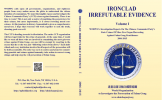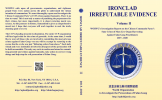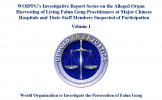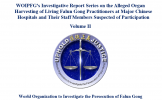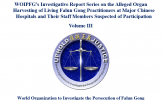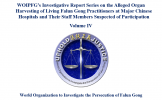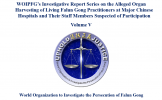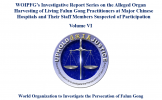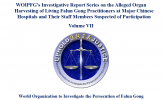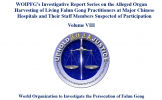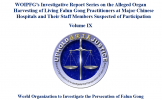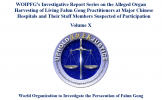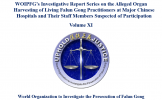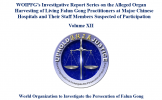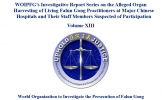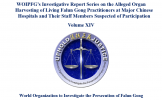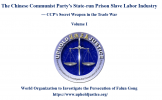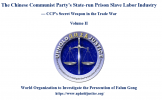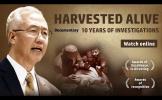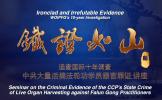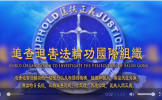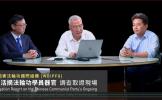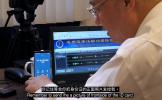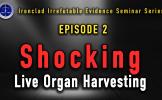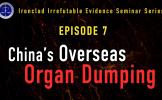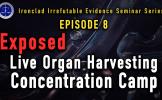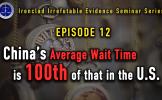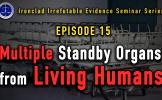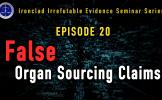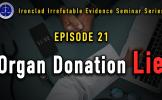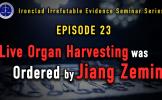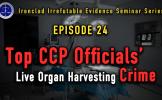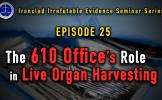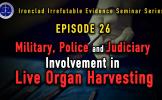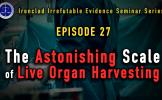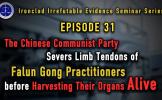Human Rights Watch - Excerpts from the Publication - Dangerous Meditation, 01/ 2002 VII.
"China's efforts to equate the Falungong with terrorists are ludicrous...he charge that Falungong threatens the stability of China does not hold up. Its claim that belief in Falungong is a public health menace is equally bogus. The danger to health comes from the treatment its practitioners receive at the hands of the police and prison officials." HRW, 01/2002.
VII. ANALYSIS OF THE GOVERNMENT RESPONSE
[...]
Two political considerations appear to have underlain the decision of the Chinese leadership, led by President and Communist Party leader Jiang Zemin, to mount a full-fledged campaign to eradicate Falungong and to allocate the necessary manpower and financial resources.
[...]
Despite the factors described above, not all China's leaders opted to eradicate Falungong. Some preferred to implement a program of co-optation that would bring Falungong under strict bureaucratic control analogous to the way China treats religious believers and institutions. Many enterprise managers and bureau chiefs reportedly were less than enthusiastic about the crackdown. So long as followers were willing to go about their practice quietly, the responsible authorities in many of these units were satisfied with pro forma recantations and ready to look the other way when practice continued.
President Jiang Zemin apparently thought otherwise. He treated the April 25 protest as if it were a personal political insult as well as a threat to social stability. By insisting on harsh repression, Jiang could accomplish two ends: demonstrate his ability to bend the Party to his will and eliminate what he considered a potential threat to his rule and his legacy.65 But he had to move quickly. Only three-and-a-half years would separate the Zhongnanhai event and the Party Congress in 2002, and political jockeying would begin long before the meeting itself.
Many commentators have suggested that if after his retirement Jiang were to succeed in retaining behind the scenes power and realizing his hoped-for place in history, he would have to ensure the Party remained strong and recovered ideological legitimacy.66 Leftist elements in the Party, which had never been enthusiastic about economic, much less political reform, were seeking to derail Jiang's plans and sideline his proteges. Should the economy falter, social order deteriorate badly, or China's rise to global prominence slow, Jiang would be held personally responsible, and he likely concluded he could not afford to risk a vibrant Falungong, ?
[...]
http://www.hrw.org/reports/2002/china/China0102-06.htm#P888_238367


